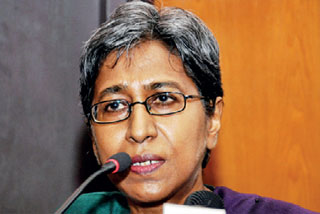Sunday Feb 22, 2026
Sunday Feb 22, 2026
Wednesday, 19 October 2022 00:00 - - {{hitsCtrl.values.hits}}
By Zahida Rizvi
 |
| ACIAR Agribusiness Program Manager Howard Hall |
 |
| Australia Deputy High Commissioner to Sri Lanka Amanda Jewel |
 |
| ACAAIR South Asia Regional Manager Pratibha Singh |
 |
| IPS Executive Director Dr. Dushni Weerakoon |
 |
| National Planning Department Director Rohitha Wickramarathna
|
Sri Lanka and Pakistan are emerging economies in South Asia and share common ground in establishing sustainable food systems. Both countries are posed with increasing demand for their highly-valued fresh fruits and vegetables, which are a source of cash income for the farmers.
In an approach, to mitigate the food losses associated with the highly valued food commodities and difficulties in establishing a development approach, the project ‘Food Loss Mitigation in Mango and Tomato Value Chains in Pakistan and Sri Lanka,’ facilitated by International Policy Studies ( IPS) in collaboration with the Australian Centre for International Agricultural Research (ACIAR), Open University of Sri Lanka, University of Peradeniya, Sri Lanka, Wayamba University, Sri Lanka, Bahauddin Zakariya University, Pakistan, Fortunate Agribusiness, Pakistan, PMAS-Arid Agriculture University, Pakistan, Quaid-i-Azam University, Pakistan, is launched.
ACIAR Program Manager Agri-Business Howard Hall spoke to the Daily FT at the project inception workshop of “Developing food loss reduction pathways through smart business practices in mango and tomato value chains in Pakistan and Sri Lanka,” held at IPS, Colombo, stated that the project has been invested around AUD 1.5 million and was officially approved for funding last three weeks ago and is envisioned to be completed over a three-year period, 2022 to 2024.
“I believe that this will contribute to Sri Lanka getting back on the path. Our research funding organisation looks forward to improving the production and livelihoods of the stakeholders involved in agriculture and the value chains through this project and by sharing knowledge between Sri Lanka and Pakistan, both countries have the ability to improve agriculture practices.
“Therefore, improving the ability of the industry enables us to focus on the quality by improving on food losses, on the ability to harvest the products and ability to transport, at the right time,” Hall said.
Additionally, the project aims to identify the root causes of food losses in Pakistan and Sri Lanka in the new agri-business value chains of both countries to enhance and bring benefits to both rural and urban communities.
Thereby, implementing affordable technological and organizational options to mitigate food losses and create new economic opportunities across the value chain.
Food losses and value chain
Food losses are referred to as the decrease in edible food mass that is available for individual consumption throughout the different segments of the supply chain.
Food losses are estimated across the value chain based on a macro and micro-based approach using aggregated data from national or local authorities and large companies, and using data regarding specific actors in the different value chain stages, respectively.
Food losses are a result of either food being left to deteriorate or being discarded accidentally or voluntarily which causes the food to be counted as non-compliance with food safety standards and regulations. Furthermore, food products can face a deterioration of quality, leading to a loss of economic and nutritional value.
Therefore, all the food that has undergone changes owing to spoilage or physical damage, such food products are sold for a lower price. All such damaged food commodities face an economic loss, in addition, the drop in quality will have a major impact on the nutritional value, which overall affects the health and nutrition security of the population.
Several factors that influence the spoilage of food products are the Pre-harvest climatic conditions, the harvest index used (‘physiological’ timing at which food is harvested), the time between harvest, the temperature and moisture content of the products and finally the handling, packaging and storage practices and hygiene.
Additionally, unpredictable conditions such as the COVID-19 pandemic had disrupted the value chain which had impacted food losses across the globe.
Objectives and outcomes
The project enables both countries to improve supply chain practices and set measures to mitigate the challenges posed to both countries in maintaining the quality and freshness of fruits and vegetables in their humid tropical conditions.
The project promotes production practices that create greater value for consumers that present new opportunities for farmers. This can be achieved by teaming up with value chain partners, focusing on methods to remove barriers, and avoiding large food losses during excess supply of seasonal food, during transport, and misuse of food during storage and handling.
Overall, it is projected as an attempt to improve farmer incomes and deliver benefits across the value chain including to consumers. Speaking at the event, IPS Researcher Manoj Thibbotuwawa, stated that the project idea focuses on the focal commodities that influence food loss across the value chains.
“The initial commodity is the sources and drivers - identify key sources of food losses in each country and contribute to economic and environmental impacts, fore sighting – all the measures implementing may not be applicable in the next 2 or 3 year period, emerging developments that may have impact on food losses For instance – Climate change, pandemic impacting Sri Lanka and Pakistan, Mitigation pathways – profitability drivers related to food loss and incentives for scaling up adaptations.”
Accordingly, the ‘Food Loss Mitigation in Mango and Tomato Value Chains in Pakistan and Sri Lanka,’, project aims to work through tomato and mango value chains in Pakistan and Sri Lanka to identify key value chain practices that contribute to food loss and value depletion.
The project is estimated to analyse the operating environment of these chains, including climate change and COVID-19 implications which have a direct impact on food loss mitigation and bring about solutions with the involvement of all the stakeholders across the value chain to mitigate such risks and transform the countries practices for food loss mitigation.
The Project is further estimated to bring about solutions that will result in reduced post-harvest food losses through the development and adoption of information-led coordination technologies over the period to help producers understand what consumers want in terms of food attributes and better match supply to demand.
It is setting measures to mitigate post-harvest loss reduction through improved service delivery technologies using e-commerce and knowledge-sharing applications to align production and business practices with consumer preferences.
In addition, to the use of technology-based approaches for food loss mitigation via mobile apps and e-commerce platforms, strategies will be placed in the value chain scheduling and contracting, and quality-focused handling in tomato and mango value chains are identified.
Consequently, by using mango and tomato as focal commodities, this project aims to pave a pathway that enhances mango and tomato smallholder farmers to shift from semi-subsistence farming to more efficient commercial farming.
Furthermore, to develop the capability to model cost-productivity trade-offs in loss reduction at primary production to processing stages.
The efforts to reduce food loss in the regions of Pakistan and Sri Lanka will be conducted simultaneously to capture the response drivers of food security (availability, accessibility and utilisation of food), business competitiveness (stability and profitability) and sustainability (greenhouse gas emissions, input use intensities, and relevant Sustainable Development Goal indicators) in representative
Deducting food losses at exporting countries level
Developing food loss reduction pathways paves a path to reduce food loss in international trade and enhance exports
The G20 2022 publication on “Reducing Food Loss in International Trade” claims that food loss occurs at every stage of the agri-food value chain from the initial stage of on-farm to distribution, including processing, and all the way to cross-border trade.
In international trade, the rejection made by importing countries increases food loss which in turn has significant implications for the global status of food security and resilience.
The value chain of agri-food products is spread over several countries and the imports from developing countries in which many of which have not developed extensive food standards inclusive of food safety standards have contributed to the rejection in importing countries.
As per recent studies, it is reported that the number of cases of imported food rejection has been at an alarming rate due to the inability to reduce and the crucial factor that contribute to the food loss are lack of the ability to export countries to meet food safety standards of importing countries
According to ACIAR, it is claimed that harnessing benefits in these value chains by maintaining quality and freshness under humid tropical conditions presents a vast challenge.
Thereby, improving supply chain practices in order to avoid food losses during seasonal gluts, transport, storage and handling paves a path to improve the incomes of farmers and all the stakeholders involved across the value chain.
Both Pakistan and Sri Lanka are working towards modern food systems although a gap still exists which has enabled the need for working hand in hand with chain partners, prioritising ways to improve barriers, and reaching out to all those involved across the chain to the final consumer.

Pix by Lasantha Kumara